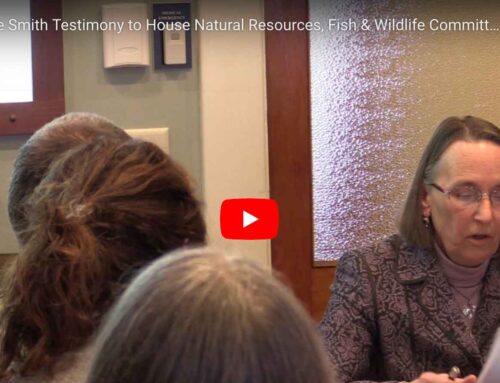Read VCE’s appeal of the special use permit approved by the US Forest Service for land next to the George D. Aiken Wilderness in southwestern Vermont here.
VCE Appeals USFS Deerfield Wind Permit
Impacts to Wilderness, Water Quality, and Conflict of Interest Cited
Vermonters for a Clean Environment today filed an appeal of the US Forest Service’s decision last month to award a Special Use permit to Iberdrola, Inc. to build 15 389-foot tall wind turbines on ridgelines in Searsburg and Readsboro, within the Green Mountain National Forest in southwestern Vermont.
Annette Smith, VCE’s Executive Director, explained that the appeal is based on a number of factors. “The permit decision violates federal laws on numerous grounds – conflict of interest, failure to independently evaluate noise and aesthetics, the impacts of blasting and the impacts to groundwater, the changed circumstance regarding bats, and the degradation of the neighboring George D. Aiken Wilderness, to name a few.”
VCE is working with a team of lawyers and researchers on the appeal of the project, which would be the first of its kind on Forest Service land. “We believe we have a very strong case,” Smith said, “and we understand the important precedents this case will set.”
The USFS permit for the project, known as “Deerfield Wind”, would allow the construction of the 15 turbines that were approved two years ago by the Vermont Public Service Board (PSB). Iberdrola, a Spanish company, initially proposed 17 turbines. The PSB approval came in a split decision, despite objections from the Vermont Agency of Natural Resources and others that the project would destroy critical bear habitat.
The Aiken Wilderness was designated by Congress in 1984. This 5,060 acre area in Bennington County was named in honor of Senator George Aiken, of Putney, Vermont, who represented Vermont in the United States Senate from 1941 through 1975. Aiken was an outdoorsman and lover of Vermont’s mountain landscape who believed that “out in the woods you can think better.” Aiken “valued the remote, undeveloped areas of his state … [and] was a strong supporter of the 1975 eastern Wilderness Act. Aiken was also a staunch opponent of efforts by power companies to grab and monopolize Vermont’s natural resources for their own benefit, concerned that, if they had their way, power generators would “control the destiny and development of the state.” His disapproval of the “public utility boys” was the centerpiece of one of his political campaigns.
VCE’s members think it is incumbent upon the Forest Service to preserve and protect the Aiken Wilderness in its primitive state, as a tribute to its namesake and so that there will always remain areas in Vermont that are free from industrialization. As the Vermont Wilderness Act recognizes, “lands in Vermont which are suitable for designation as wilderness are increasingly threatened by pressures of … spreading mechanization, and development and uses inconsistent with the protection, maintenance, and enhancement of their wilderness character….”
The development would occur less than two miles from the George D. Aiken Wilderness, and would be visible and audible from large portions of it.
The appeal, formally termed a request for administrative review of the Record of Decision that awarded the Special Use permit, has been filed with the USFS Eastern Regional Forester Chuck Myers, who is based in Milwaukee, WI. A decision from Myers is required within 45 days.
***


